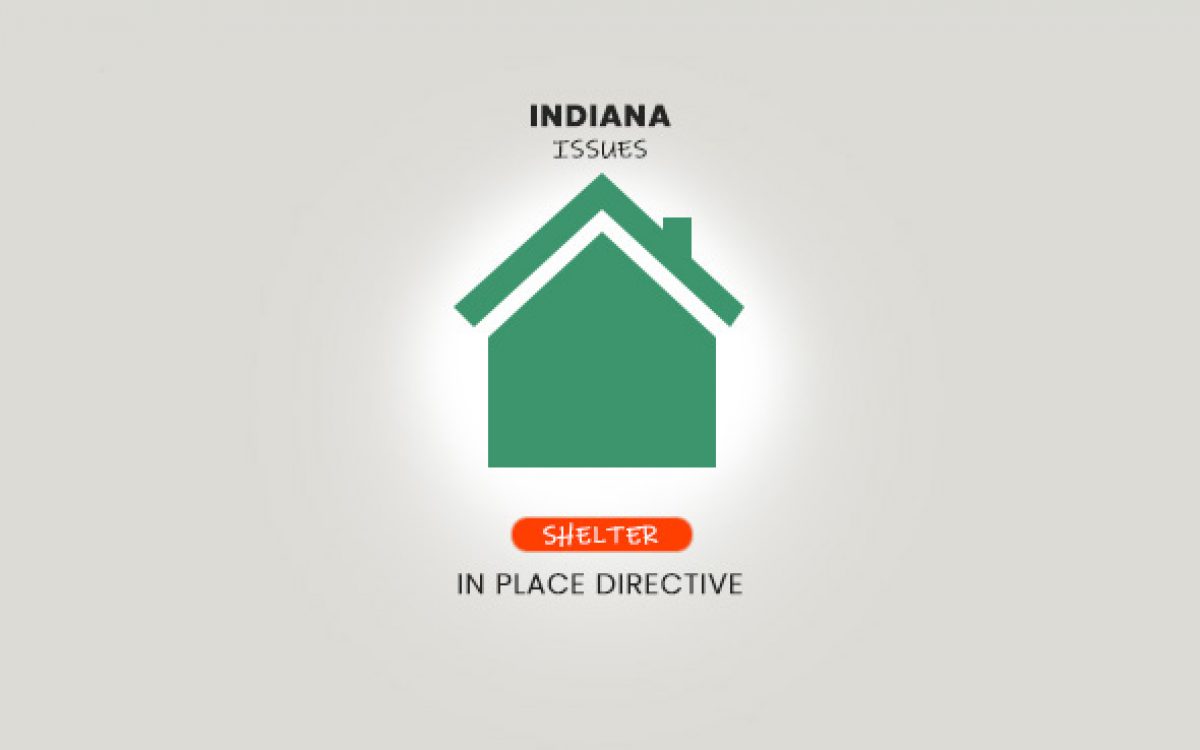On March 22nd, Indiana Governor Eric Holcomb issued an Executive Order requiring all residents, except those considered essential, to stay at home for thirteen (13) days beginning at 11:59 p.m. on March 24th through 11:59 p.m. on April 6th. The Order does allow for “Essential Activities,” “Essential Businesses and Operations,” “Essential Governmental Functions,” “Essential Infrastructure,” “Essential Travel,” “Healthcare & Public Operations,” and “Human Services Operations”; see below for detailed information in regard to those activities that are considered “essential.”
- To engage in activities or perform tasks essential to their health and safety, or to the health and safety of their family or household members (including, but not limited to, pets), such as, by way of example only and without limitation, obtaining medical supplies or medication, or visiting a health care professional;
- To obtain necessary services or supplies for themselves and their family or household members or persons who are unable or should not leave their home, or to deliver those services or supplies to others, such as, by way of example only and without limitation, groceries and food; household consumer products; supplies they need in order to work from home; automobile supplies (including dealers, parts, supplies, repair and maintenance); products necessary to maintain the safety, sanitation, and/or essential operation of homes or residences;
- To engage in outdoor activity, provided the individuals comply with Social Distancing Requirements such as, walking; hiking; running; or biking. Use of parks and open outdoor recreation area is permitted. Public playgrounds, however, will be closed and should not be used;
- To perform work providing essential products and services at Essential Businesses and Operations or to otherwise carry out activities specifically permitted or allowed under the Order, including Minimum Basic Operations;
- To care for a family member or pet in another household;
- To work for or obtain services through “Healthcare and Public Health Operations” including hospitals; clinics; dentists; pharmacies; pharmaceutical and biotechnology companies; organizations collecting blood, platelets, plasma, and other necessary materials; obstetricians and gynecologists; eye care centers; home healthcare services providers; mental health and substance abuse providers; other healthcare facilities and suppliers and providers of any related and/or ancillary healthcare services; and veterinary care and all healthcare services provided to animals;
- “Healthcare Operations and Public Health Operations” also includes manufacturers, technicians, logistics, and warehouse operators and distributors of medical equipment, personal protective equipment, medical gases, pharmaceuticals, blood and blood products, vaccines, testing materials, laboratory supplies, cleaning, sanitizing, disinfecting or sterilization supplies, as well as tissues and paper towel product;.
- Fitness and exercise gyms, spas, salons, barber shops, tattoo parlors, and similar facilities are specifically excluded under the Order;
- To work for or obtain services at any “Human Services Operations,” which includes long-term care facilities, day care centers, day care homes, group day care homes; residential settings and shelters for adults, seniors, children, and/or people with developmental disabilities, intellectual disabilities, substance use disorders, and/or mental illness; transitional facilities; home-based settings to provide services to individuals with physical, intellectual, and/or developmental disabilities, seniors, adults, and children; field offices that provide and help to determine eligibility for basic needs including food, cash assistance, medical coverage, child care, vocational services, rehabilitation services; developmental centers; adoption agencies; businesses that provide food, shelter, and social services, and other necessities of life for economically disadvantaged individuals, individuals with physical, intellectual, and/or developmental disabilities, or otherwise needy individuals; and
- Individuals may also leave their homes and residences to provide any services or perform any work necessary to offer, provision, operate, maintain, and repair “Essential Infrastructure,” including, but not limited to, food production, distribution, fulfillment centers, storage facilities, marinas, and sale; construction (including, but not limited to, construction required in response to this public health emergency, hospital construction, construction of long-term care facilities, public works construction, school construction, essential business construction, and housing construction); building management and maintenance; airport operations; operation and maintenance of utilities, including, for example, water, sewer, and gas; electrical (including power generation, distribution, and production of raw materials); distribution centers; oil and biofuel refining; roads, highways, railroads, and public transportation; ports; cybersecurity operations; flood control; solid waste and recycling collection and removal; and internet, video, and telecommunications systems.
